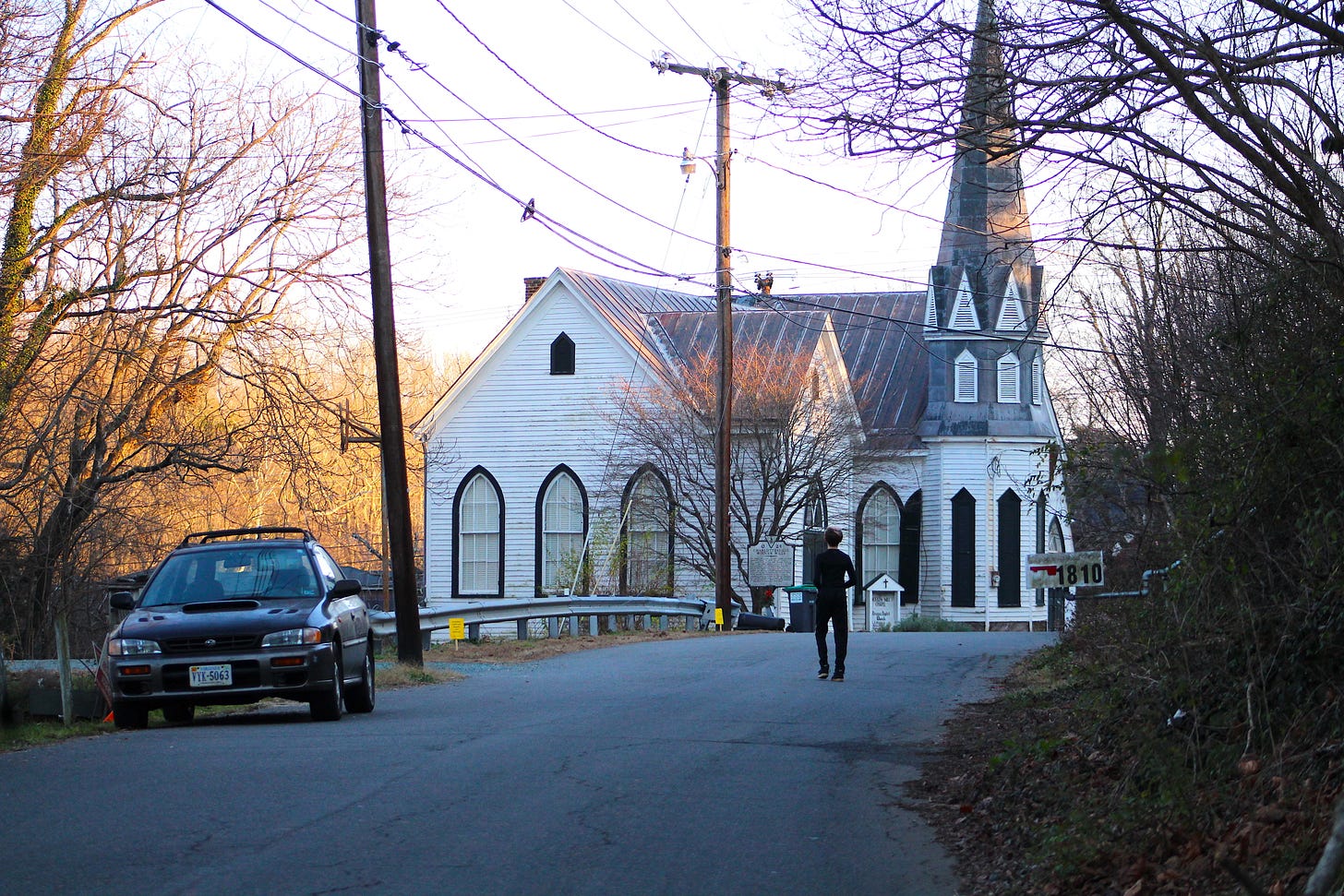The Woolen Mills Chapel finally gets a proper owner
The Woolen Mills Chapel on East Market Street quietly changed hands for only the second time in 136 years last month, when a neighborhood non-profit formed in 2015 transferred the deed to the property, which has been in legal limbo for decades, to Preservation Piedmont, a non-profit long-dedicated to historical preservation.
The original deed for the property was gifted to a group of employees of the Wool Factory by its owner, H.C. Merchant, in 1887 so that they could build a church. By Christmas of that year, a rectangular structure was in place and services were held, and in 1908 an addition was added, but since then no major work has been done on the chapel. In 2020, the original Woolen Mills Chapel Board of Trustees were still listed in city records as owners of the property, the year the neighborhood non-profit, after years of back and forth in the city courts, was finally able to take ownership of the property.



